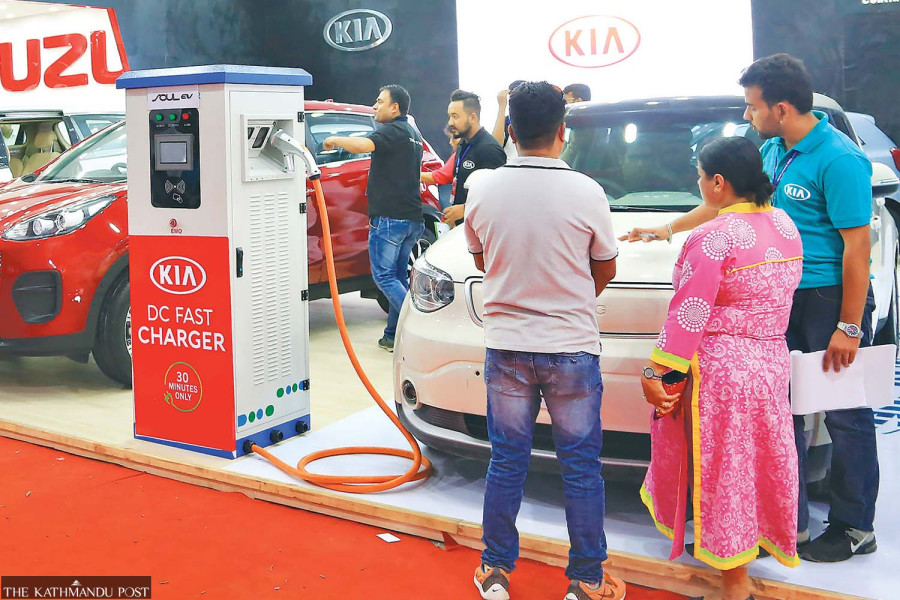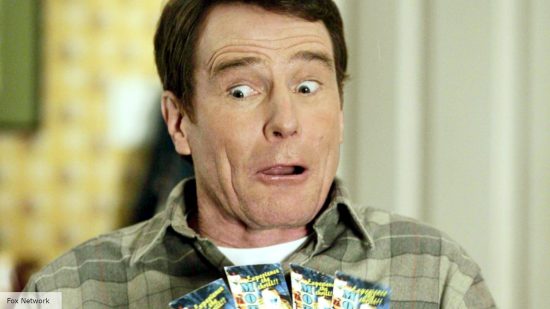European Car Market Slowdown: Economic Uncertainty Impacts Sales

Table of Contents
Economic Factors Fueling the European Car Market Slowdown
Several intertwined economic factors are contributing to the current slump in European car sales.
Inflation and Rising Interest Rates
Increased inflation across Europe has significantly reduced consumer purchasing power. Simultaneously, rising interest rates make borrowing more expensive, impacting affordability and making car loans less attractive.
- Increased loan repayments: Higher interest rates translate directly into larger monthly payments for car loans, making car ownership less accessible to many potential buyers.
- Reduced disposable income: Inflation erodes purchasing power, leaving consumers with less disposable income to spend on discretionary items like new cars.
- Impact on leasing options: Leasing, a popular financing option for cars, is also affected by rising interest rates, leading to higher monthly lease payments.
Eurostat data reveals inflation rates consistently exceeding expectations in many European nations, further exacerbating the financial strain on potential car buyers. Interest rates, as set by the European Central Bank (ECB), are also at levels not seen in years, impacting consumer borrowing capacity.
Energy Crisis and Fuel Prices
The ongoing energy crisis and volatile fuel prices are significantly impacting car purchasing decisions. Concerns about energy security and escalating fuel costs are leading consumers to reconsider their vehicle choices.
- Shift towards smaller, more fuel-efficient cars: Consumers are increasingly opting for smaller, more economical vehicles to mitigate fuel expenses.
- Increased interest in electric vehicles (EVs): The high cost of gasoline is driving greater interest in electric vehicles, although high purchase prices and limited charging infrastructure remain significant barriers.
- Impact on consumer confidence: The uncertainty surrounding energy prices and the overall economic climate negatively affects consumer confidence, making large purchases like new cars less appealing.
Fuel price fluctuations throughout the year have added to the uncertainty, with significant spikes impacting household budgets and impacting demand for larger, less fuel-efficient vehicles.
Supply Chain Disruptions
Persistent supply chain disruptions continue to plague the automotive industry, hampering production and impacting vehicle availability.
- Delays in car deliveries: Semiconductor shortages and logistical bottlenecks are causing significant delays in the delivery of new cars.
- Impact on production capacity: Manufacturers are struggling to maintain production levels due to the lack of essential components.
- Increased vehicle prices due to shortages: Supply constraints have led to increased vehicle prices, further limiting affordability.
The ongoing semiconductor chip shortage, coupled with port congestion and transportation issues, has created a perfect storm of supply chain challenges impacting the European car market.
Impact on European Car Manufacturers and the Automotive Industry
The European car market slowdown has profound consequences for manufacturers and the broader automotive industry.
Decreased Production and Sales
Major European car manufacturers are experiencing a sharp decline in both production and sales.
- Specific examples of manufacturers affected: Volkswagen, Renault, and Stellantis, among others, have reported significant sales declines.
- Job security concerns: Reduced production inevitably leads to job security concerns within the industry.
- Impact on factory closures or downsizing: Some manufacturers are already considering factory closures or downsizing operations to adapt to the reduced demand.
Charts and graphs illustrating the decline in sales and production figures for major European car manufacturers would visually reinforce this point.
Strategies for Adapting to the Slowdown
Car manufacturers are actively implementing strategies to navigate this challenging period.
- Examples of manufacturers' strategies: Cost-cutting measures, restructuring, and strategic partnerships are being employed across the industry.
- Increased focus on EVs: Investment in electric vehicle technology and infrastructure is accelerating as manufacturers seek to adapt to changing consumer preferences and environmental regulations.
- Mergers and acquisitions within the industry: Consolidation within the industry is expected as manufacturers seek to achieve economies of scale and enhance their competitiveness.
Industry experts' insights and official company statements would provide valuable context and credibility to this section.
Changing Consumer Behavior in the European Car Market
Economic factors and environmental concerns are driving a shift in consumer behavior.
Shift in Consumer Preferences
Consumer preferences are evolving in response to the current economic climate.
- Increased demand for used cars: The high cost of new cars is leading to increased demand for used vehicles.
- Growing interest in electric and hybrid vehicles: While still facing affordability challenges, EVs and hybrids are gaining traction due to rising fuel costs and environmental awareness.
- Preference for smaller, more affordable cars: Consumers are increasingly opting for smaller, more fuel-efficient and affordable models.
Market research data and surveys supporting these trends would strengthen the arguments.
Increased Scrutiny of Vehicle Purchases
Consumers are exhibiting greater caution and price sensitivity in their car buying decisions.
- Longer decision-making processes: Consumers are taking more time to research and compare options before making a purchase.
- More emphasis on comparing prices and features: Price and value for money are key considerations in purchasing decisions.
- Increased reliance on online resources: Consumers are heavily reliant on online reviews, comparison websites, and other digital resources to inform their choices.
Conclusion: Navigating the European Car Market Slowdown
The European car market slowdown is a complex issue driven by a confluence of factors, primarily economic uncertainty, inflation, rising interest rates, the energy crisis, and persistent supply chain disruptions. The impact on manufacturers is evident in reduced production and sales, while consumers are exhibiting greater price sensitivity and a shift towards more affordable and fuel-efficient vehicles.
The outlook for the European car market remains uncertain. A potential recovery depends on various factors, including inflation rates, interest rate policies, and the resolution of supply chain issues. Long-term trends point towards increased electrification and a greater focus on sustainability.
To stay informed about the evolving European car market and its sales slowdown, subscribe to our newsletter, follow industry news, and engage with our related content. Understanding the dynamics of the European automotive sector is crucial for both consumers and industry professionals.

Featured Posts
-
 Injury News Mc Kenna Back In Training Cajuste Progressing Ipswich Team Update
May 28, 2025
Injury News Mc Kenna Back In Training Cajuste Progressing Ipswich Team Update
May 28, 2025 -
 Cbs Announces Jennifer Lopez As Host For 2025 Amas
May 28, 2025
Cbs Announces Jennifer Lopez As Host For 2025 Amas
May 28, 2025 -
 Wind Advisory With Snow Tuesday Severe Weather Forecast
May 28, 2025
Wind Advisory With Snow Tuesday Severe Weather Forecast
May 28, 2025 -
 2023 2024 Sezonu Viktor Gyoekeres Goller Asistler Ve Oyun Istatistikleri
May 28, 2025
2023 2024 Sezonu Viktor Gyoekeres Goller Asistler Ve Oyun Istatistikleri
May 28, 2025 -
 Surya Paloh Krisis Infrastruktur Jalan Raya Di Bali
May 28, 2025
Surya Paloh Krisis Infrastruktur Jalan Raya Di Bali
May 28, 2025
Latest Posts
-
 Uerduen Gazze Den Tahliye Edilen Kanserli Cocuklara Kapilarini Aciyor
May 29, 2025
Uerduen Gazze Den Tahliye Edilen Kanserli Cocuklara Kapilarini Aciyor
May 29, 2025 -
 Is A Malcolm In The Middle Reboot Happening Bryan Cranston Speaks Out
May 29, 2025
Is A Malcolm In The Middle Reboot Happening Bryan Cranston Speaks Out
May 29, 2025 -
 Is A Malcolm In The Middle Revival Happening Bryan Cranston Weighs In
May 29, 2025
Is A Malcolm In The Middle Revival Happening Bryan Cranston Weighs In
May 29, 2025 -
 Malcolm In The Middle Reboot Bryan Cranstons Insights On Changes
May 29, 2025
Malcolm In The Middle Reboot Bryan Cranstons Insights On Changes
May 29, 2025 -
 Everything Going To Be Great Movie Trailer First Look And Reactions
May 29, 2025
Everything Going To Be Great Movie Trailer First Look And Reactions
May 29, 2025
